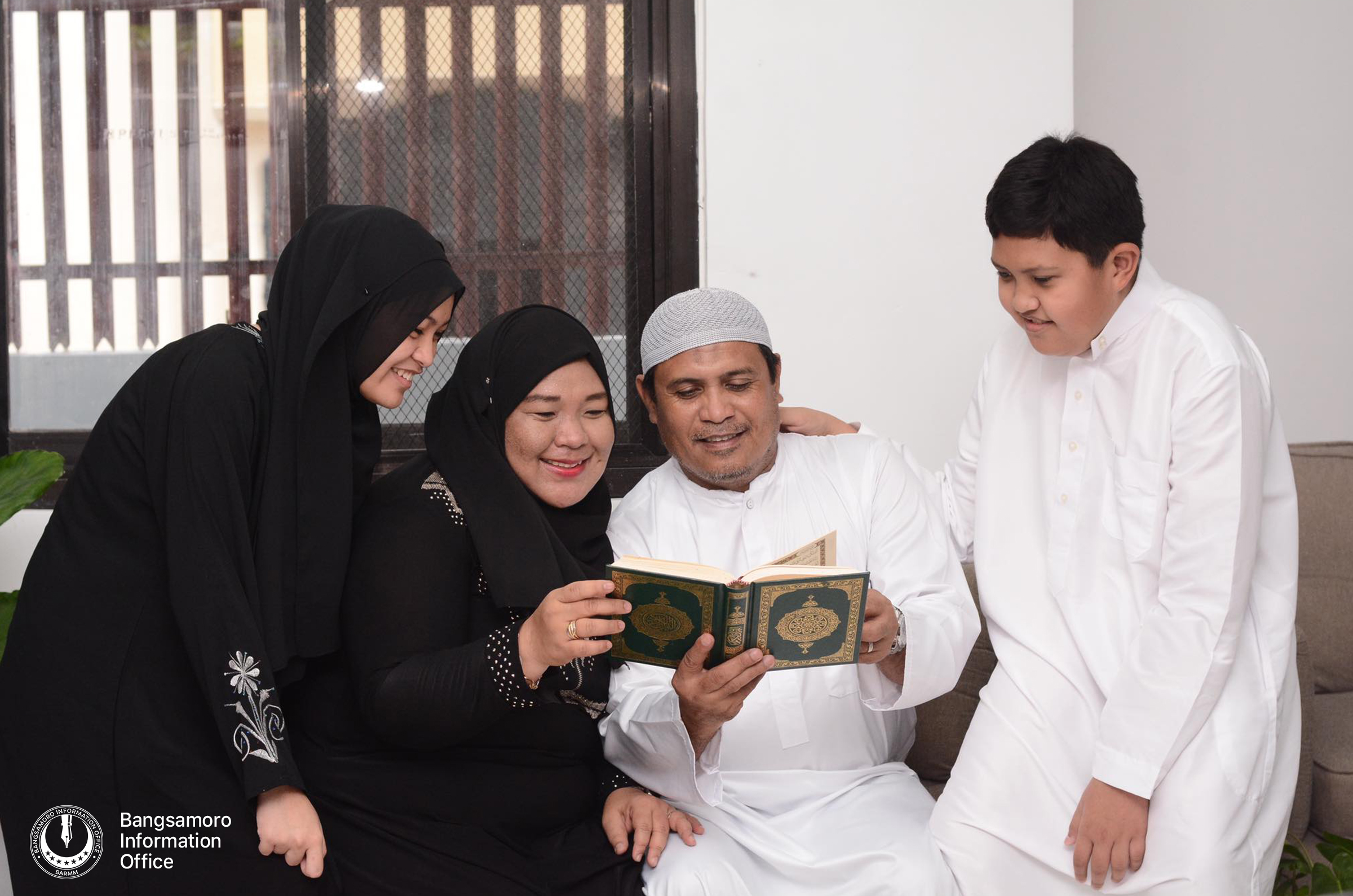
Tarbiyah or nurturing starts from the parents. For the Sambolawan-Edris family, reading the holy Qur’an strengthens not just their faith to Allah but also their bond as a family. (Photo by Michael Camsa/BIO)
Ramadhan is the ninth month of the Islamic calendar and is the holiest month in Islam. It is a time of fasting, prayer, reflection, and charity. Muslims around the world observe fasting from dawn until sunset during this month, abstaining from food, drink, and other physical needs as a form of worship and a way to practice self-discipline, self-control, and empathy for those in need.
As we enter the last ten (10) nights of Ramadhan, we also strive to increase our worship and seek closeness to Allah. This is also a great time to cherish the moments with our families and teach our children valuable lessons from this sacred month.
Ibn Qayyim said: “The month of Ramadhan is superior to all other months, and the last ten nights are superior to the other nights.”
Here are some ways for us, including our family, to prepare during these precious ten nights.
Establish your intentions
In Islam, setting our niyyah or intentions is a must. We make sure that our hearts are pure and in the right place. In the last ten nights, we ask Allah to help us become successful. With this, we can encourage our loved ones to do the same.
Increase supplication
Ramadhan is believed to be the month of blessings and mercy. This is why it is the perfect chance to ask Allah for forgiveness. In the last ten days, it is good to teach our children the benefits of du’a (supplication).
Prophet Muhammad (PBUH) said: “O Allah, You are pardoning. You love to forgive, so forgive me.” Sunan At-Tirmidhi, 3513.
Perform night prayers together
During Ramadhan, families often wake up together for the pre-dawn meal (suhoor) and share the sunset meal (iftar) to break their fasts. This provides a chance for family members to spend quality time together, bond over shared meals, and create memories.
In addition to meals, families also attend taraweeh prayers together, which are special congregational prayers held every night during Ramadhan. These prayers provide an opportunity for families to come together and engage in worship as a unit. By attending prayers together, families can deepen their spiritual connection and build a sense of unity and solidarity.
Read Qur’an together
Apart from boosting the act of worship, Muslims consider this holy month a moment to spend more time than usual with loved ones.
Ramadhan is also a time for spiritual reflection and increased devotion to Allah. Muslims are encouraged to read the Qur’an (the holy book of Islam), during this month and to spend more time in prayer and acts of worship.
Increase Sadaqah
Charity and generosity are also emphasized during Ramadhan. Muslims are encouraged to give to those in need, whether through donations or acts of service and to increase their efforts to help others.
We can teach our children how to be kind and generous, and how we should take care of others who are in need. Leading by example to our children inculcates life-long values.
Involve your family
Ramadhan is a special time of the year that provides us with an opportunity to come together as a family and strengthen our bond. It is a time to cherish the moments we spend with our loved ones and to reflect on the importance of family in our lives.
Family is the foundation of our society, and during Ramadhan, we are reminded of the importance of building strong family ties. By coming together to share meals, attend prayers, and engage in acts of charity, we can create a sense of unity and togetherness that can help us weather life’s challenges.
By cherishing family together during this holy month, we can instill in our children the importance of family, community, and kindness towards others. We can teach them to appreciate the blessings of life and to be grateful for the love and support of their family.
In the Qur’an, Allah says: “Indeed, We sent the Qur’an down during the Night of Decree. And what can make you know what is the Night of Decree? The Night of Decree is better than a thousand months. (Al-Qadr 97:1-3).”
The month of Ramadhan passes by so fast. Don’t let the remaining days of Ramadhan pass without putting out your best effort. Getting our family engaged is crucial so they can appreciate the importance of these events and we hope that we can all earn rewards together. (Aisah Abas/Johaira Sahidala/BIO)







